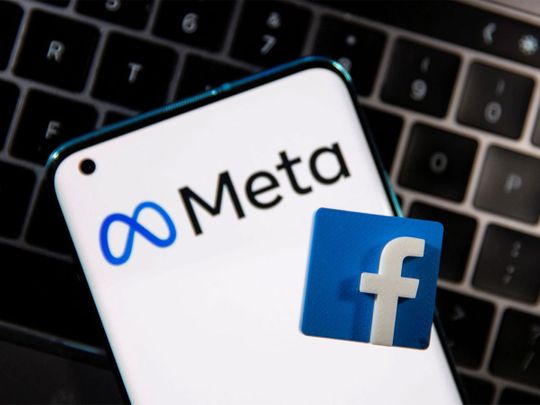
Social media is arguably the most disruptive tech to emerge in the past 20 years. Having evolved from an electronic information exchange to a fully immersive virtual environment, aggregated social media boasts a user base of 4.59 billion in 2022, with that figure set to rise to almost six billion by 2027.
Touching virtually every aspect of existence, from reconnecting old friends to marketing MNCs, social media has evolved to become the de facto form of interaction, most accurately summarised by what has been dubbed the mantra of the Instagram era: ‘Pics or it didn't happen’. More accurately described by The Guardian's Jacob Silverman, "Social broadcasts are not communications; they are records of existence and accumulating metadata.”
And herein lies the problem.
Behind the façade of connectivity and innovation lies a corrupted system of data breaches, content filtering for commercial and/or political gain, and ruthlessly refined user experiences designed to maximise your undivided attention for profit. As famously coined in the Netflix documentary, "If you're not paying for the product, then you're the product."
Breaches and data mining
In what many feel to be a closed loop, the coalescence of supposedly democratic governments, their corporate sponsors, Big Tech, and the liberal media have attempted to forge a self-perpetuating system of power that promotes a kinetic transfer of wealth within its ranks from the pockets of everyday consumers. As part of this machine, the social/digital media companies of Meta, Alphabet, LinkedIn, and Twitter (pre-Musk), have been proven to be arbiters of censorship, but worse yet, the drivers of divisiveness through identity politics, cancel culture and data theft.

Facebook's Cambridge Analytica scandal was arguably the first publicly acknowledged breach, where it became clear that no one had hacked the social media giant, but that it was complicit in providing data for political means. As summarized by Julie Carrie Wong, "Almost every company has suffered a big data breach at this point; only Facebook has endured such an existential reckoning. That's because what happened with Cambridge Analytica was not a matter of Facebook's systems being infiltrated, but of Facebook's systems working as designed: data was amassed, data was extracted, and data was exploited."
Today under the brand of Meta, Facebook and Instagram are not only aware of their unethical behaviour in sharing data, but also that their platforms have been designed in a way that is knowingly damaging to consumers, particularly teenage girls. After sitting on the research for two years, a leak seen by the Wall Street Journal from an internal presentation stated, "We make body image issues worse for one in three teen girls."
Nothing but an addiction
A subsequent report in March 2020 stated, "Thirty-two per cent of teen girls said that when they felt bad about their bodies, Instagram made them feel worse."
In addition to exacerbating mental health issues, the platforms have also been designed to be as addictive as possible. By utilising a ‘three-pronged approach’, it is now considered standard for developers to adhere to the habit-forming criteria of sufficient motivation, an action, and a trigger.
According to app developer Peter Mezyk, "If we open an app every day, developers are satisfied. On social media platforms like Facebook and Instagram, the more time we spend on the platform, the more advertising revenue flows into the pockets of tech companies — attention is currency."
As a result, many users are negatively affected through fear-of-missing-out (FOMO), a lack of focus, procrastination and wandering brain.
"They keep actually putting growth and profits above designing a platform that's predicated on the needs of its users," said Lindsey Barrett, staff attorney at Georgetown's Communications and Technology Clinic. As a particularly blatant example of this mindset, Barrett cited Facebook's insistence on using phone numbers that users provided for security reasons for non-security purposes.
A more widely and probably more threatening problem is the influence wielded in the democratic process. For instance, the widespread use of #StopTheSteal across all social media platforms, in coordination with a concerted disinformation effort by the Far Right, cast doubt on the legitimacy of the 2020 US Presidential election results and contributed to the January 6th violent assault on the US capital.
More recently, Mark Zuckerberg's acknowledgement that Facebook intentionally and algorithmically censored the Hunter Biden laptop story for a week to support the sitting administration. As a non-democratically elected body, social media companies possess a weaponized political propaganda tool. Whoever controls and wields its sword has the ability to strongly influence elections and undermine the democratic process.
Curbing even when non-derogatory
Meta isn't alone – less controversial yet broadly used platforms such as LinkedIn, particularly since being acquired by Microsoft in 2016, have not only increased focus on censoring or banning ideas that run against the narrative (particularly concerning the pandemic) but furthermore shown evidence of racial profiling, security breaches and ongoing cases of fraud.
In December of last year, the business-focused platform censored and suspended three prominent Scottish hospitality leaders following viral posts which called out the Scottish government's COVID-19 policies.
Commenting on the suspensions Stephen Montgomery, leader of the Scottish Hospitality Group (SHG), said, "When you've got three big voices in hospitality saying the exact same thing, it begs the question of why certain social media platforms are taking down our posts and locking down our accounts. Nothing I've posted is derogatory or defamatory, it's all issues relevant to the pandemic to give people information."













